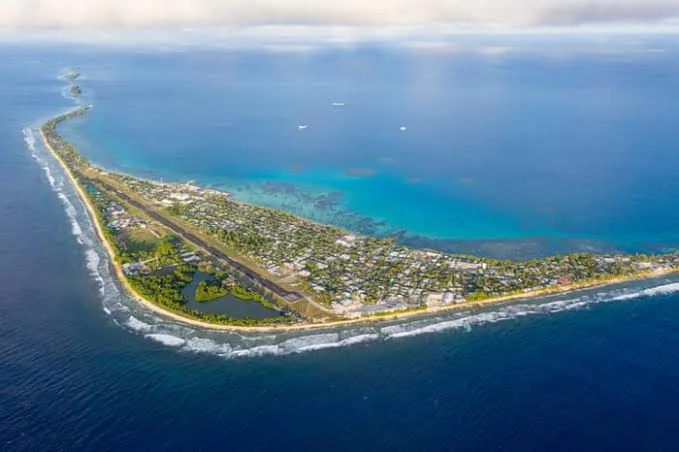The atoll nation of Tuvalu is facing an unprecedented existential crisis due to climate change-induced sea level rise. With a population of less than 12,000 inhabitants, Tuvalu’s average elevation is barely 2 meters above sea level, making it one of the most vulnerable countries to rising sea levels. Scientists predict that by 2050, 50% of Funafuti, the capital, will be flooded by tidal waters, and by 2100, that number could reach 95%.

The Human Impact
Tuvaluans are deeply connected to their land, which is not just a physical space but also a sense of belonging rooted in their identity. The word “fenua” in Tuvaluan refers to both land and a sense of belonging, making the question of leaving their homeland intractable. Many Tuvaluans are torn between staying in their ancestral lands and migrating to safer countries. “It’s a very hard decision to make. To leave a country, you leave the culture you were born with, and culture is everything – family, your sister, your brother,” said Maani Maani, a 32-year-old IT worker.

Climate Change: A Threat to Sovereignty
Tuvalu’s government is working tirelessly to preserve its sovereignty and cultural identity. In September last year, the country’s parliament unanimously passed an amendment to enshrine its statehood in perpetuity, regardless of the physical state of its land. Prime Minister Feleti Teo has formally requested support for Tuvalu’s campaign to permanently recognize its maritime boundaries at the UN General Assembly.
International Response
In November 2023, Tuvalu signed the Falepili Union treaty with Australia, which offers 280 Tuvaluans permanent residency visas each year and $11 million for coastal restoration projects. However, many Tuvaluans are frustrated with the slow pace of funding and the lack of concrete actions from the international community. “The international community needs to act now; we cannot afford to wait any longer,” said Prime Minister Teo.

Preserving Culture and Identity
Despite the looming threat of displacement, Tuvaluans are determined to preserve their culture and identity. The government has initiated projects like the Future Now Project, a “digital migration” of government services and historical artifacts to the metaverse. This will allow Tuvalu to retain its cultural heritage even if its physical land is lost.
A Call to Action
As the world watches, Tuvalu’s fate serves as a stark reminder of the devastating impact of climate change. The international community must come together to support vulnerable nations like Tuvalu, providing urgent funding and climate action to mitigate the effects of sea level rise. The clock is ticking, and the future of Tuvalu hangs in the balance.
